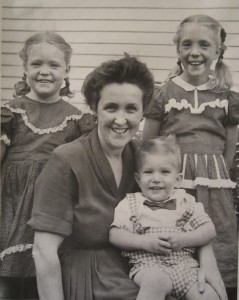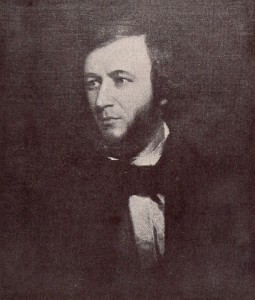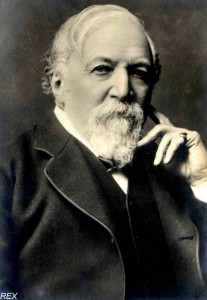 My sister, brother and I grew up in a house with very few rules. Actually, I can’t think of even one. Our mom operated at the extreme end of lenient, and of course we kids were happy about that.
My sister, brother and I grew up in a house with very few rules. Actually, I can’t think of even one. Our mom operated at the extreme end of lenient, and of course we kids were happy about that.
Recently I wondered if my advanced age might not have tilted the truth on that, so I asked Mary. Since she’s 2 years ahead of me, her childhood memories are inevitably more accurate than mine.
“No,” she said, thinking back. “I can’t remember a single rule.”
Not having any rules didn’t mean Mom wasn’t teaching us. For example, I recall one moment when I was 11 and had developed the sloppy bathroom habit of stuffing wet towels into the towel bar in a ball-like wad. Then one day Mom walked in just as I was stuffing.
Rather than chide me, she took the towel out of the bar, shook it out, and said, “I’ll be interested to visit your house some day when you’re an adult. All your bathroom towels will be wet balls.”
 She then carefully looped the towel over the bar, running her hand the length of it for extra smoothness. I stood there studying her work and realized for the first time why my towels had always been damp. But something else more important happened, too. I felt badly about stuffing my towel, because I’d been a disappointment to Mom.
She then carefully looped the towel over the bar, running her hand the length of it for extra smoothness. I stood there studying her work and realized for the first time why my towels had always been damp. But something else more important happened, too. I felt badly about stuffing my towel, because I’d been a disappointment to Mom.
Many years later I asked her, “Why didn’t you ever give us a list of rules or punish us when we did things badly?”
Her answer revealed her parenting philosophy. “Once you knew the right thing to do, I knew you’d do it…. because you loved me.”
Hmmmm.
I’ve often felt that same way toward God, wanting to please him with my daughter-behavior. When I fail, it impacts me greatly because of how much I love him. It’s interesting that after God set out 10 commands for his children to obey, Jesus condensed them into 2, both based on acting in love in response to his love for us. Maybe Mom had something there.
Nate and I raised our children with rules, insisting on regular chores, compulsory church attendance, spankings for defiant behavior, etc. Maybe we had to do it because there were so many of them. Or maybe the difference between our rules and Mom’s lack of them was that she was a kid-at-heart and we weren’t.
In any case, years after my towel-hanging exchange with Mom, I had acquired some bathroom towel bars of my own. And when she came to visit Nate and I, she always found neatly hung towels drying nicely.
 But then 7 children joined us, requiring endless towel-hanging exchanges with them that were no fun to have. So we finally eliminated the whole problem. We took down the towel bars and hung 7 hooks.
But then 7 children joined us, requiring endless towel-hanging exchanges with them that were no fun to have. So we finally eliminated the whole problem. We took down the towel bars and hung 7 hooks.
“Love the Lord your God with all your heart, all your soul, and all your mind and…. Love your neighbor as yourself…. The entire law and all the demands of the prophets are based on these two commandments.” (Matthew 22:37-40)
 Robert Browning wrote a poem with an oft-quoted opening that put a positive spin on growing old:
Robert Browning wrote a poem with an oft-quoted opening that put a positive spin on growing old:





